Visiting the Temples in Bagan, Myanmar (Burma)- Part 1
Nobody warned me about the bats…
All temples in Myanmar must be visited barefoot. It doesn’t matter how hot it is outside or how wet and slippery the marble tiles are, you are to leave your shoes at the entrance (or bottom of a temple you climb) or carry them with you. It also doesn’t matter if the inside of the temple is covered in bat guano as we learned in our first temple visit.
First, here are some tips on temple etiquette in Burma:
- No shoes! No socks! Not even flip flops on the temple grounds, bare feet only. Bring handi wipes. Trust me.
- Dress respectfully; keep the exposed skin to a minimum. You’ll want to do this anyway to avoid sunburn and mosquitoes, but basically it’s out of respect.
- Be respectful of the buddha images; don’t touch them, especially the head, kneel in front if it’s a reclining buddha and you’d be standing above it. Also, please respect worshipers and try not to get in anyone’s face with your camera.
Note to self; when in a place like this, with literally thousands of temples, pagoda, stupas, zetis to see, take notes. Later, you won’t be able to distinguish many of them from each other, even with photos.
Below is the Dhammayangyi pagoda. Inside there are dark corridors and up in the ceiling, live bats. I’m not bothered by the bats being there, or even their flapping about, but walking barefoot amid the guano? Yep. That’s not fun. That said, I didn’t let this taint our first temple visit, and it certainly was fascinating.

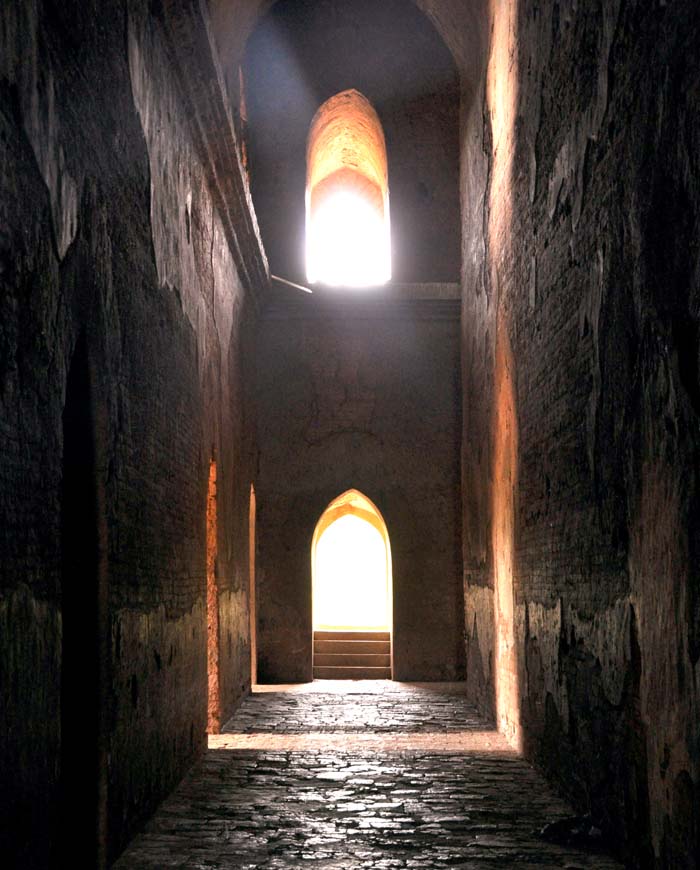


After the first temple, our driver took us to another, and through the streets of Bagan, where we saw young monks lining up for the morning alms and kids on their way to school in the back of a big truck.
Next up was the very picturesque Sulamani temple (below).
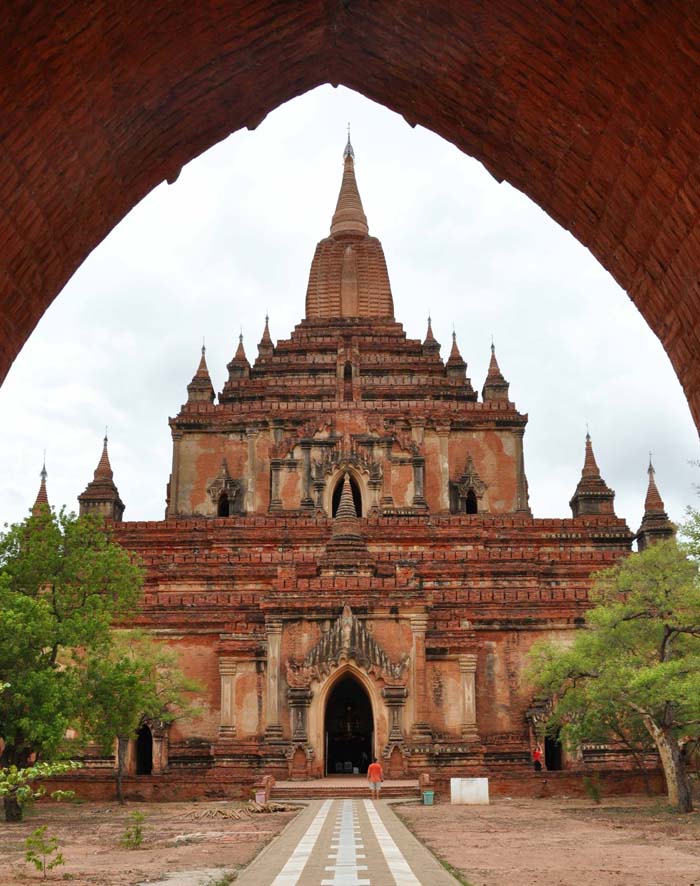

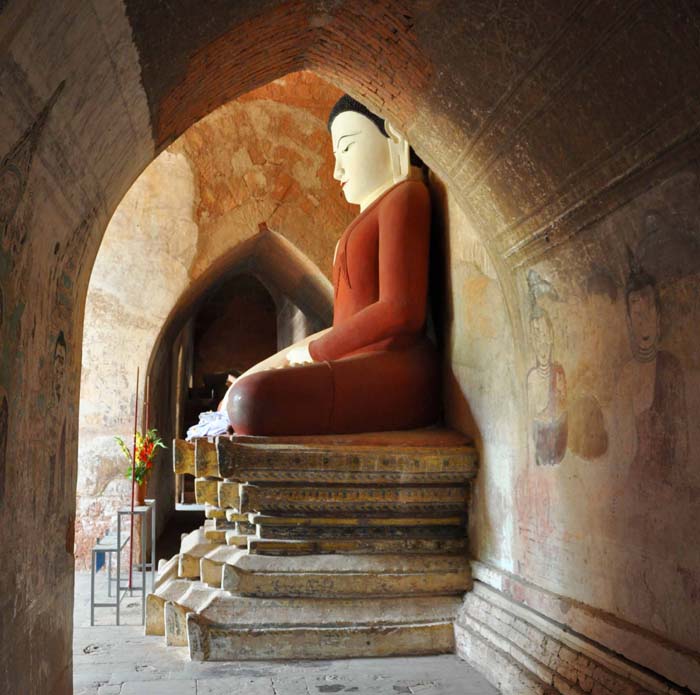



What is the difference between a temple, a pagoda and a stupa?
It’s easy to get confused with the terminology. A “temple”, in Burma is basically a place of worship or for meditation in Burma. A “pagoda”, also called a “paya”, is a structure which contains the “stupa” and the area around it. Sometimes a stupa is also called a pagoda. The stupa typically has a relic chamber inside.
One of the largest pagodas in Bagan is the Shwezigon Pagoda and it’s covered in gold leaf. There are long colonnades leading up to the center. Some are empty, and some are filled with vendors selling all manner of trinkets. There were almost no tourists around when we were there.
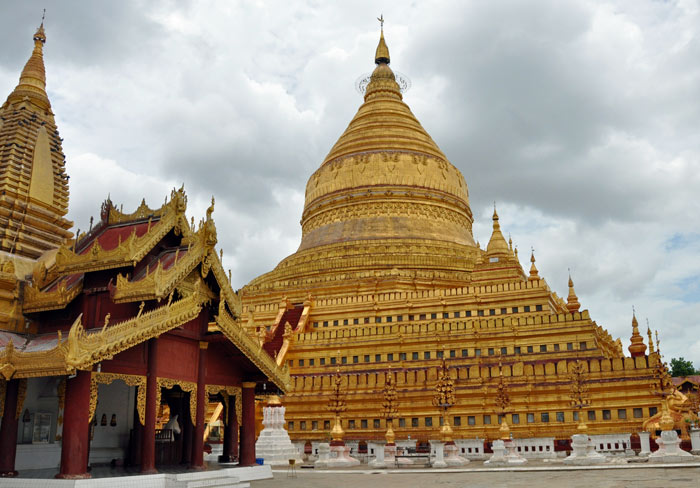
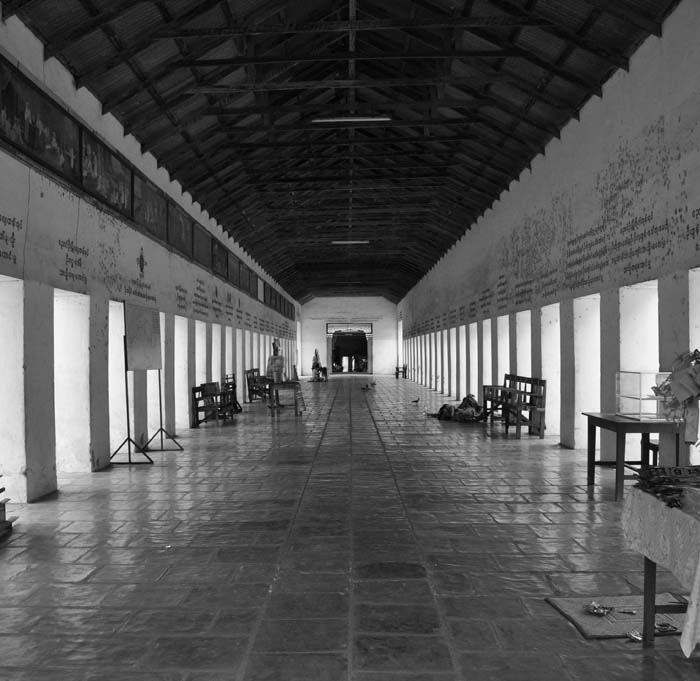

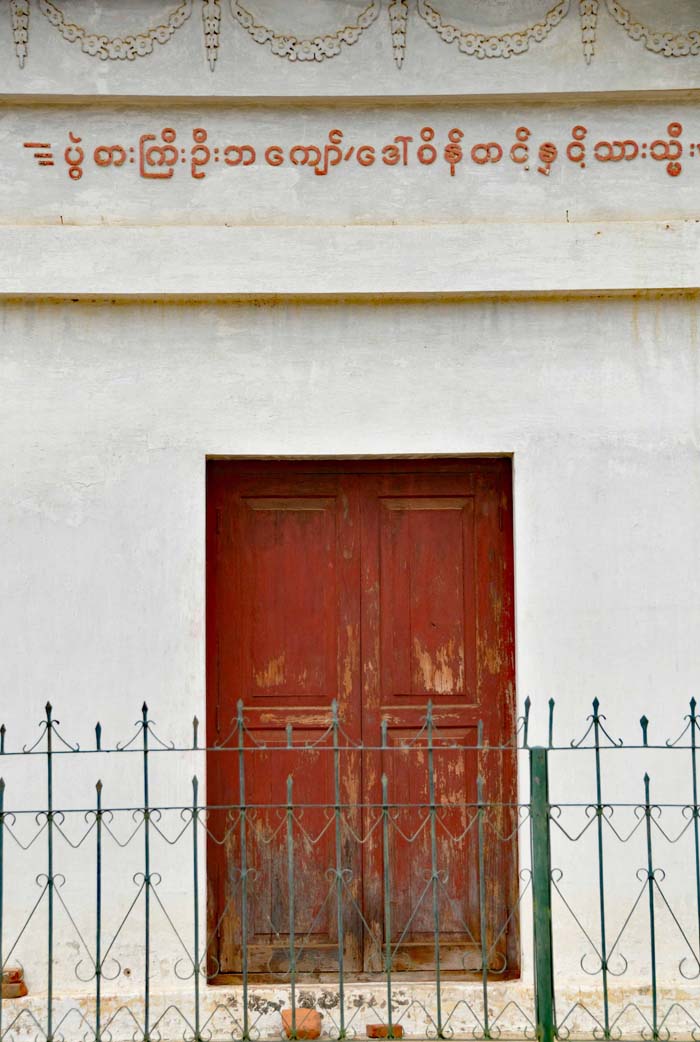

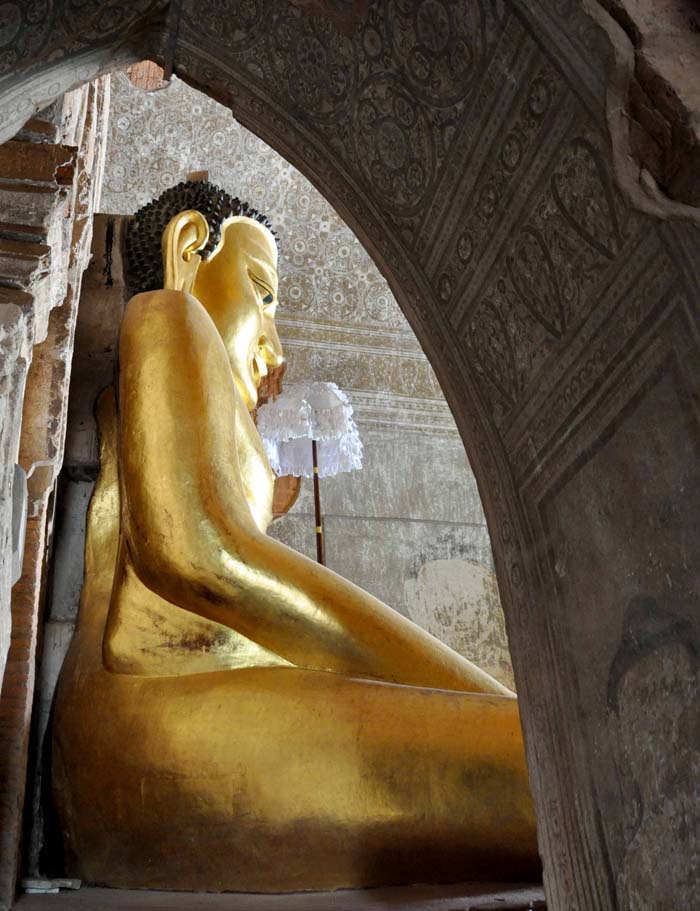
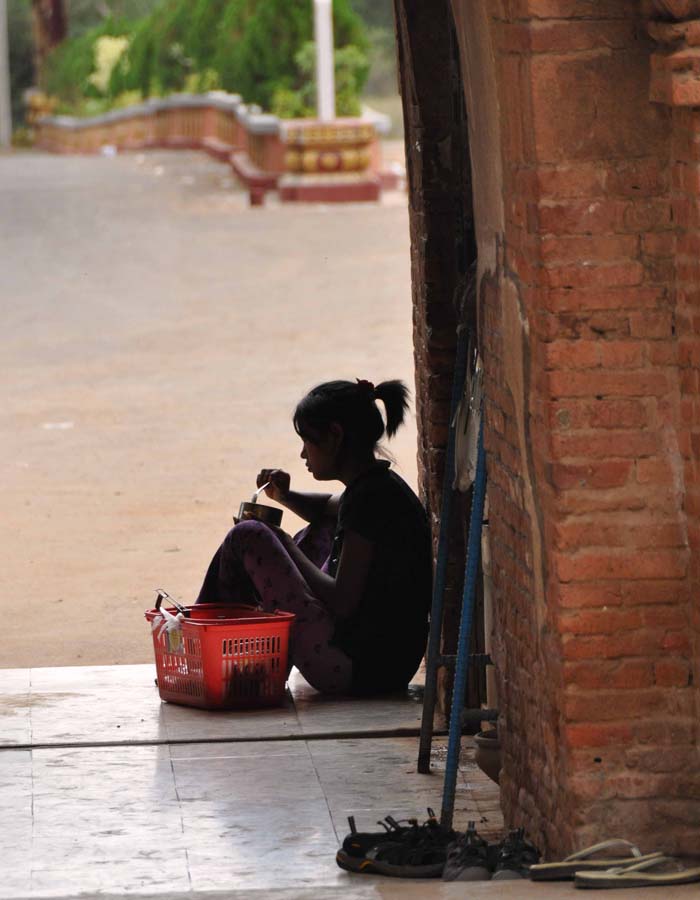
More temples to come because one day (and one blog post) just isn’t enough to do it justice.

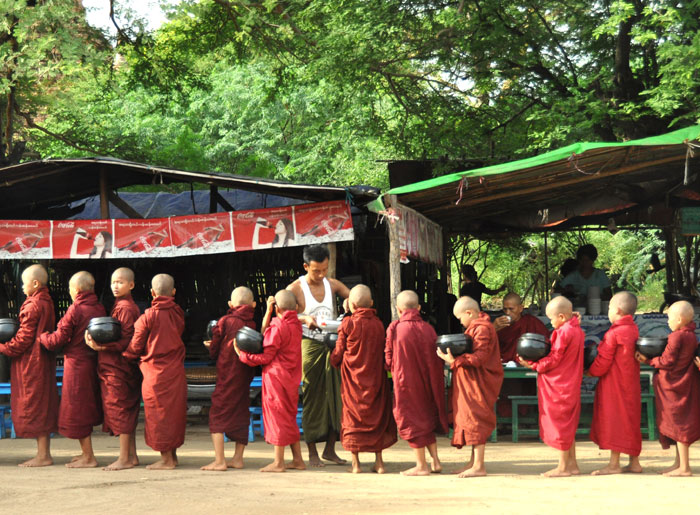


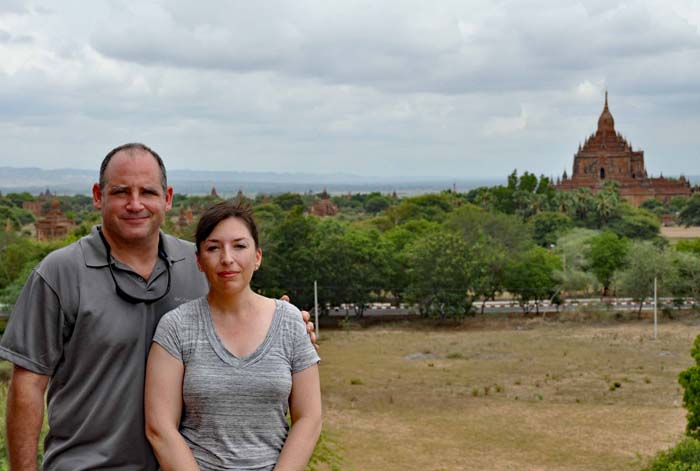
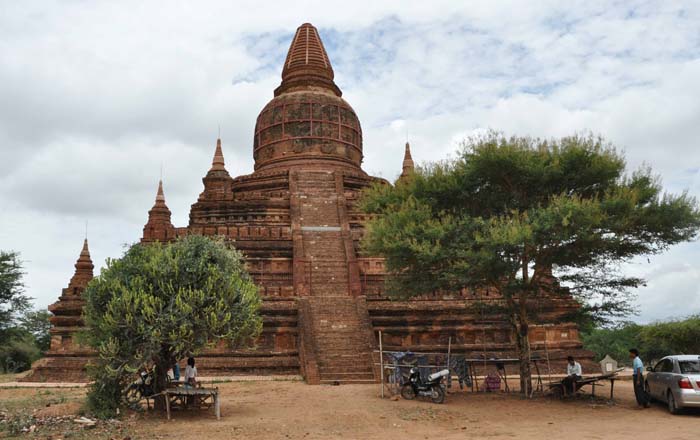

One Comment
tim
thank you for your trip report.
Always enjoy your insight comments and can’t wait to read more about it.